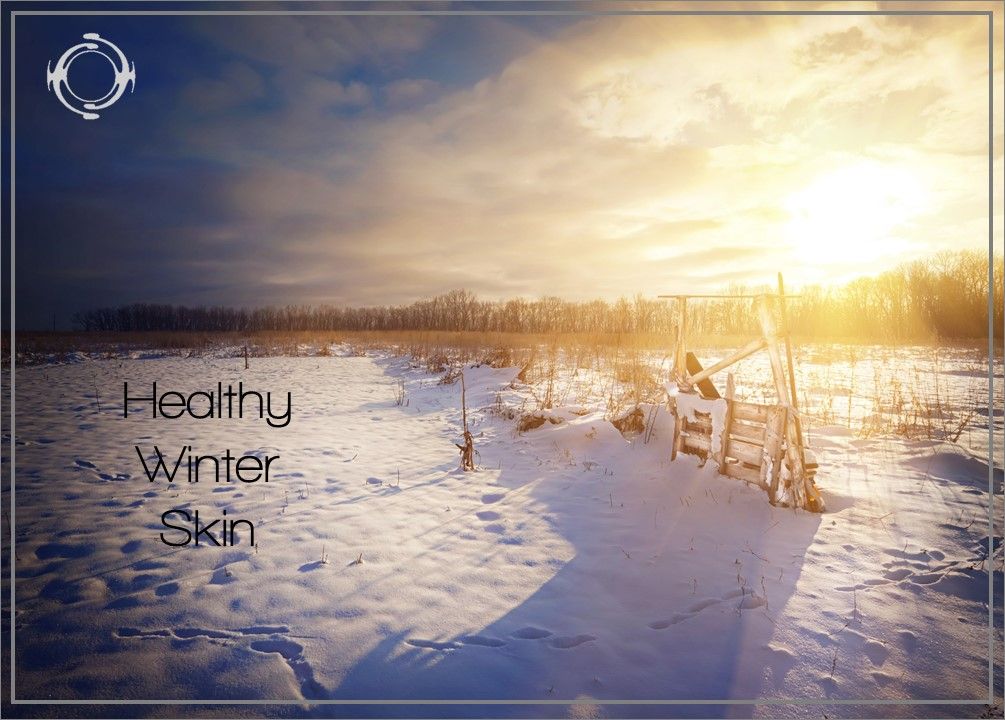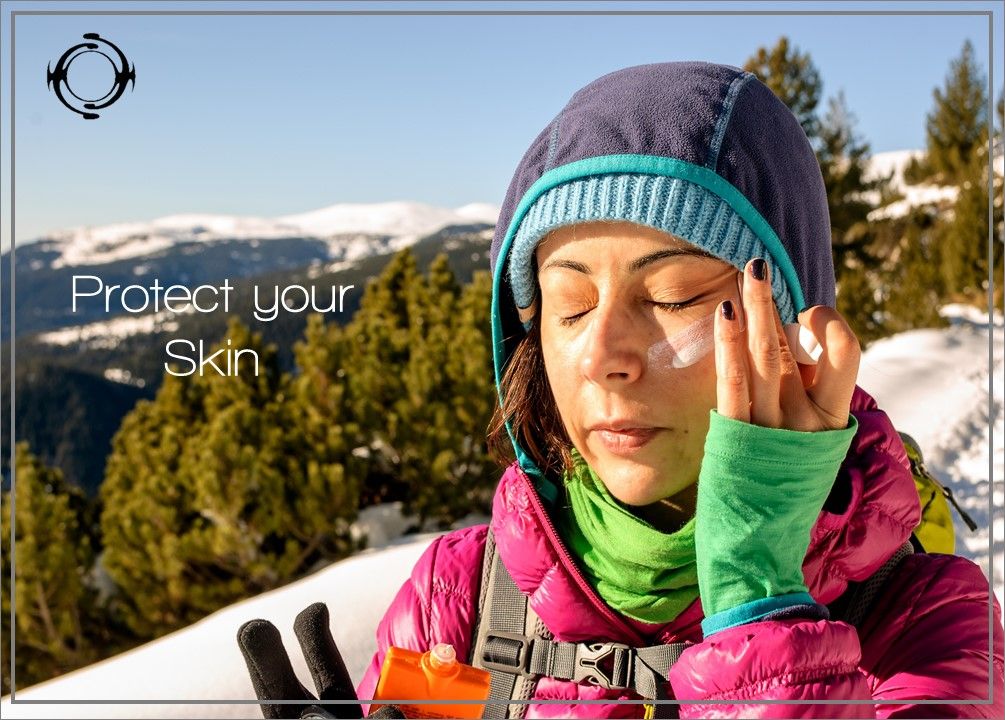Healthy Winter Skin

When
Winter arrives we all want to keep the chill outside and the warmth
inside. But that means we crank up our heat and this inevitably leads to
dry skin.
Whether you heat your home with oil, gas or electricity, the effect is the same.
So how do you reduce the effects of Winter and central heating on your skin?
Read my guide below so you can enjoy healthy, happy skin throughout the cold Winter days.

So What Does the Cold Winter Weather do to Your Skin?
The Winter weather strips your skin of its moisture and then sucks away the naturally-produced sebum (or oil) that your skin creates to keep your skin moisturised.
Then when you turn on your central heating, it will begin to pull the moisture out of the air in your home, making it drier and this, in turn, pulls the moisture out of your skin.
So it's a double-whammy - both the Winter weather outside and the central heating inside both draw moisture out of your skin.
As your skin loses moisture, it becomes more and more dry and can begin to feel tight and itchy.
To avoid your skin becoming damaged and prematurely aging you really need to turn the heat up on your skincare routine.

Adjust your Cleansing and Moisturising Routine
Did you know that whilst a hot shower or bath may feel good when it's cold outside, the hot water actually strips the oil away from your skin much more than lukewarm water?
I recommend you turn down the heat a bit when you're in the bathroom, especially when you're washing your face and hands as they are exposed to the cold weather the most, and the skin on your face and hands is thinner than the skin elsewhere on your body.
Because your skin dries out more in Winter you really need to up your game when it comes to moisturising and you may find that the moisturiser you use in Spring and Summer just won't kick it in Winter.
I recommend using oil-based products such a facial serum to replenish the oil that is being stripped from your body (read more about why you should use oil on your skin here >)
I also recommend using a body butter which is heavier than a moisturiser as a traditional and true body butter should not contain any water (make sure 'aqua' (water) isn't listed on the ingredients label), only butters and oils (read more about the difference between body butter and other moisturisers here >)
Always have an oil-based product like a facial serum close by when you cleanse your skin, for example near the bath, shower or at the sink, so you can liberally apply it immediately after you wash. Applying a moisturising product to damp skin helps seal that dampness into the skin.
Don't forget about your feet. During Winter your feet also need extra strong treatment so the lotion you use during summer just make not kick it. I recommend upgrading to a heavier moisturiser which is full of butters and oils just like my foot butters.
And
remember to choose your moisturiser carefully. Avoid moisturisers which
contain petroleum-based ingredients such as mineral oil or paraffin wax
as these ingredients tend to dry out your skin even more.

Protect Your Skin
When you're out and about protect your skin from the Winter elements by covering up and wearing gloves and scarves. By adding this extra layer of protection you reduce the amount of moisture being sucked from your skin.
Apply sunscreen. Yes - sunscreen isn't just for summer. The Winter sun, especially in combination with the reflection and glare from the snow, can still damage your skin.
I recommend you apply sunscreen to your face and other exposed areas such as your hands (if you don't have gloves) approximately 30 minutes before going out and re-applying if you are staying out for long.
Avoid wearing socks and gloves that are damp or wet as this can irritate your skin or cause cracking and itching.
Additionally, if you suffer from eczema, wet gloves and socks could cause a flare-up.
If your facial skin is dry, avoid using harsh peels and masks that contain alcohol or are clay-based as these will strip the oil from your skin. Rather choose masks which are 'deeply hydrating' and use them less often.

Exfoliate, Hydrate and Sleep on it
Although regular weekly exfoliation should be part of our skincare routine, because we cover up more in Winter and our skin isn't on show so much, we tend to forget the importance of exfoliating our skin.
We need to remember the reason for weekly exfoliation and that's to help remove dead cells from the skin. If there are too many dead cells caught on the skin your Winter moisturiser simply cannot penetrate through to do its job.
Whilst it's important to exfoliate your body each week, I recommend you pay particular attention to exposed areas of skin such as your face, hand and lips. I further recommend you use an exfoliating product which contains butters and oils meaning your product will exfoliate and moisturise. And I do still recommend that immediately after exfoliating, you still generously slap on your Winter moisturiser, the Queen of Winter moisturisers being body butter.
Question: How many
times have you heard someone tell you that you need to drink plenty of
water to keep your skin hydrated and looking younger for longer?
Well.... just because you drink plenty of water doesn't mean you won't have dry skin.
According to Dermatologist, Kenneth Bielinski, whilst the skin of someone who is severely dehydrated will benefit from drinking fluids, the average person's skin does not reflect the amount of water they consume.
I recommend drinking plenty of water for your health, not just your skin.
In Winter, when it's cold outside, there's nothing more comforting than curling up in front of the fire with a warm cup of sweet milky cocoa. Let me make a suggestion: why not replace that treat every now and then with a drink of warm water with lemon juice? Add some honey to naturally sweeten it. Not only is it more hydrating but it'll give your immune system a boost.
As you
already know, you need to crank up the amount of moisturiser you use in
Winter. But why not also let your moisturiser work for you while you
sleep?
On those areas that need that extra boost of moisturiser during Winter, such as hands and feet, why not slap some body butter on your hands and foot butter on your feet last thing at night, then wear cotton gloves and socks to seal in the moisture until morning.
